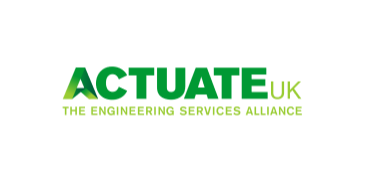
The UK's Net Zero ambitions are currently hindered by an acute skills shortage that hampers the design, development, supply, installation, inspection, and maintenance of legacy, current, new, and innovative systems. This was the conclusion of Energy Systems Catapult’s (ESC) new report commissioned by Actuate UK, the engineering services alliance.
ESC interviewed and surveyed professionals from across the built environment sector to examine perspectives on net zero skills, the context for those and the opportunities that addressing them might represent.
Surveying industry professionals over the last year, the report reveals a worrying picture of skills shortages, lack of awareness and the need for a cultural shift. The report also examines the context and opportunities related to net zero skills issues and has suggested a comprehensive three-part framework to address these challenges: Awareness, Action, and Advantage.
Awareness
- Awareness of the need to decarbonise buildings is inconsistent and abstract. Clear definitions of what net zero buildings are, encompassing the full lifecycle of the building, will be central to setting the course for upskilling the sector.
- Partnerships that educate clients about net zero buildings and how to commission them could play a key role in supporting increasing demand and investment in quality.
- There is widespread awareness of an existing skills shortage. Without urgent action, an increasing need to deliver net zero buildings will only exacerbate this.
Action
- A framework of targeted activities, regulations, standards and processes will be needed to deliver net zero buildings. Industry needs to play a central role in defining, driving and delivering this, partnering with government where necessary to build a landscape which facilitates this.
- Trade organisations have a vital role in articulating the skills needs and tailoring these activities to specific sectors as well as government to help educate and drive the industry to deliver.
- Action should focus on easily accessible training that consistently delivers high-quality outcomes and on bringing new, diverse talent into the sector. Promoting upskilling, the integration of new skills and mobility of skills within and beyond the sector could help refresh and reset the culture within the industry.
Advantage
- Competing on the basis of quality will drive diversification - offering clients a far greater range of options that they currently have - and investment in skills and innovation.
- Businesses, organisations and individuals who demonstrate a lifelong appetite for learning and development will be in highest demand, driving a sector and culture that strives for continuous improvement and high quality.
Delivering net zero buildings is a technical challenge. But creating a sector which – at every level – understands that challenge, embraces it and takes ownership and responsibility for addressing it requires a profound culture shift. A shared understanding of the vision – at task, project and sector level – and productive, collaborative behaviours will be crucial to building and embedding the right technical skills in the most effective way.
Helen Yeulet, Director of Training and Skills of Building Engineering Services Association (BESA), who also leads the Actuate UK Skills Group, commented:
“The report shows that we are at a tipping point for the industry’s skills capacity. There is a clear consensus that the industry needs to drive cultural change with Government providing supportive incentives.
We want to work with our partners in Actuate UK and beyond to define the industry’s skills needs and training solutions which will be ensure the industry can achieve readiness for delivering on our net zero targets” she said.
Commenting on the report, Andrew Eldred, Director of Workforce and Public Affairs at ECA, and deputy chair of the Actuate UK Skills group, added:
“High-quality training standards and delivery at scale are essential for the UK’s successful transition to net zero. The report confirms that we need a concentrated strategy to recruit and upskill thousands of engineering services workers to meet these standards. As explained in Chris Skidmore’s independent review Mission Zero skills shortfalls in key engineering professions can threaten to derail the UK’s plans for decarbonizing buildings and preparing the UK for a net zero economy.
It was encouraging to see in the industry respondents that there is an appetite for the right net zero training. However, we need to ensure high-quality training for net zero is available throughout, from our new apprentices to the current experienced workers who need to upskill and update their knowledge and experience.”
Rob Hargraves, Retrofit Skills Advisor, at Energy Systems Catapult said: “If we think of the scale that is required to meet government installation targets, then we desperately need a lot more engineers and a lot more people working in retrofit in general, but also greater focus on defining and delivering against net zero outcomes for new buildings too. Getting to Net Zero requires a wholesale change in thinking on skills. It will require us to take a holistic approach. Making sure the skills are there. Making sure the standards are enforced and upheld. Making sure there is an informed customer base.
“As technologies evolve, we need to be ready to evolve our approach to training and the regulatory environment. That is our skills focus at the Catapult – ensuring that we have a collaborative mix of skills to assess, design, and install the clean tech we need to meet our ambitious climate goals.
Some of the key report findings:
The current skills gap will continue to grow without focused action.
- 73% of the survey respondents felt that the sector, as it is now, will not be able to deliver quality net zero buildings at scale.
- 68% of respondents did not feel it was easy for their company or organisation to find people with the right skills, &
- 63% did not expect that it would be easy to find staff with the right skills in 5 years’ time.
Cultural change is needed.
- 73% respondents felt that cost and time to deliver take priority over quality.
- Responses suggest the current prioritisation of cost over quality should be reversed.
Who can drive this change?
- There was no clear consensus among industry respondents about who should drive change. The biggest divergence in view was for government involvement – some felt strongly that government should not drive change, feeling instead that net zero targets needed to be depoliticised.
- By contrast, 80% expected involvement of industry bodies, contractors and subcontractors and clients and these opinions were evenly distributed.
You can access the full report here and on the Energy Systems Catapult website: https://es.catapult.org.uk/report/equipping-building-engineers-to-deliver-net-zero/
Last updated 21 July 23

